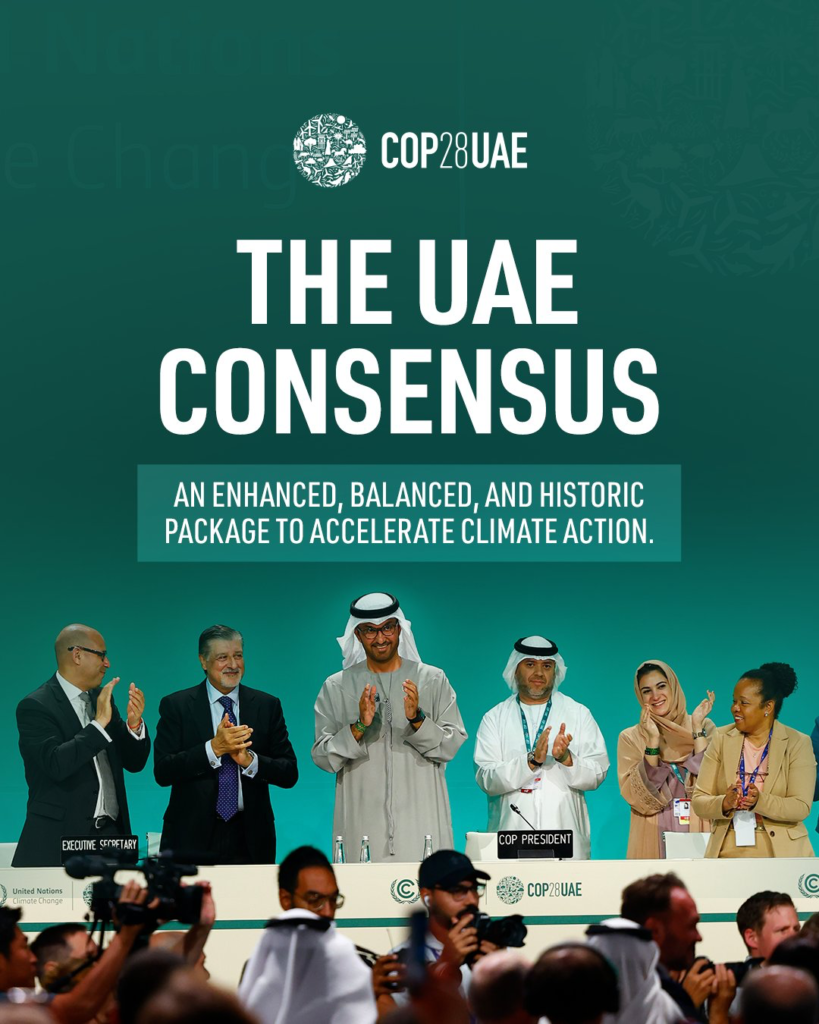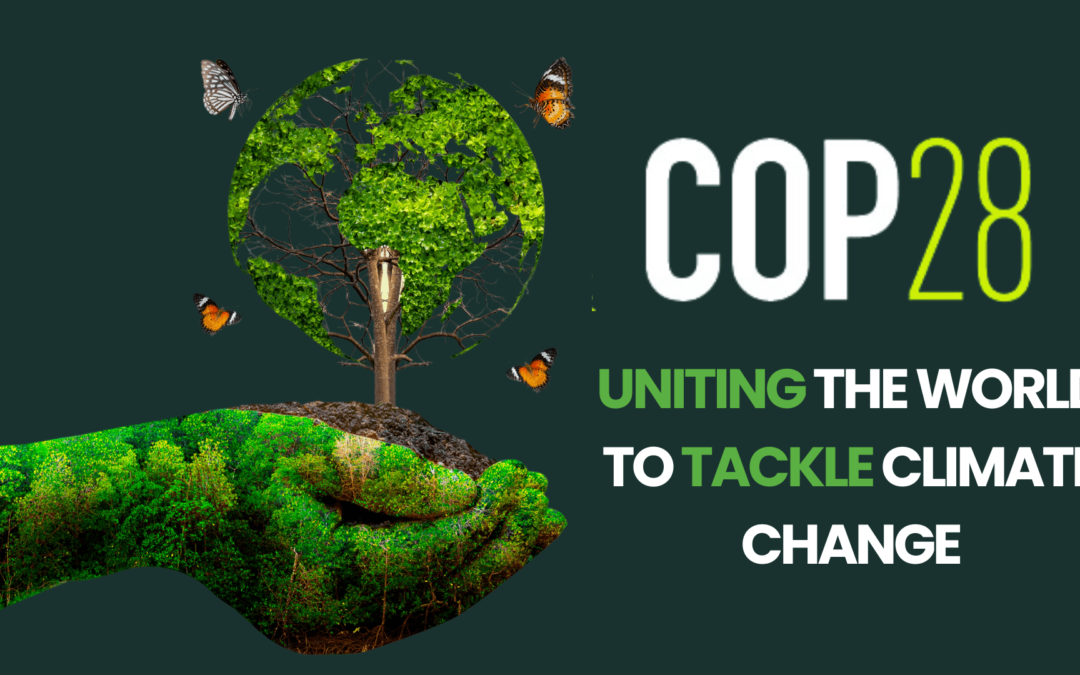The world watched with bated breath as the 28th Conference of the Parties (COP28) of the United Nations Framework Convention on Climate Change (UNFCCC) unfolded in Dubai. While hopes were high for a definitive turning point, the final outcome landed somewhere between ambition and reality.
Key Outcomes :
- Global Goal to triple Renewables and double energy efficiency.
- Fossil fuel phaseout: While a clear commitment to phasing out fossil fuels wasn’t achieved and nowhere seen in the world, the final agreement acknowledged the need for a “swift, just and equitable transition” away from them. This was seen as a significant step, marking the first time such language had been included in a COP agreement.
- Increased ambition on emissions cuts: Countries agreed to revise their Nationally Determined Contributions (NDCs) – national plans for reducing greenhouse gas emissions – by the end of 2024, with the aim to meet Paris Agreement 2030 goals. Although failed to commit full phase out.
- Operationalizing Loss and damage finance: Developed countries agreed to establish a new funding mechanism to address the loss and damage caused by climate change in vulnerable countries. This was a major win for developing nations, who have been pushing for such a mechanism for years.
- Adaptation and mitigation: The conference also saw progress on other key issues, such as adaptation to the impacts of climate change and mitigation of greenhouse gas emissions. Countries agreed to various initiatives and partnerships to support these efforts.
Speaking at UNFCCC COP 28 Climate Session

- Breakthrough Energy Catalyst: Gates announced a new funding commitment of $1 billion to the Breakthrough Energy Catalyst program, which supports the development and deployment of clean energy technologies.
- Reaching the Last Mile Forum: Gates participated in the Reaching the Last Mile Forum, where he discussed the importance of eradicating neglected tropical diseases, which are often exacerbated by climate change.
- Global Health and Climate Summit: Gates co-hosted the Global Health and Climate Summit, which brought together leaders from government, business, and civil society to discuss the health impacts of climate change.
- Supported the use of gene sequencing, AI and Satellite data to make “Climate Resilient”, in order to improve the lives of over 500 million farmers.

Expert Opinions:
UN Climate Change Executive Secretary Simon Stiell: “While a complete turn of the page was not achieved in Dubai, the outcome marks ‘the beginning of the end’ for fossil fuels.”
Dr. Jennifer Morgan, Executive Director of Greenpeace International: “COP28 was a step in the right direction, but we still have a long way to go. We need to see more ambitious emissions reduction targets and more financial support for developing countries.”
Professor Michael Mann, Climate Scientist: “The agreement is a positive step, but we need to translate words into actions. The next few years will be critical in determining whether we can avert the worst impacts of climate change.”
A sustainable future within reach:
While COP28 may not have been the definitive turning point, it has undeniably shifted the paradigm. It has sent a clear message: the world is moving beyond fossil fuels, and the time for decisive action is now.
By translating promises into actions and ambition into concrete plans, we can build a sustainable future for all.


Trackbacks/Pingbacks